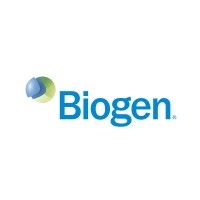Biogen

🇺🇸United States
- Country
- 🇺🇸United States
- Ownership
- Private
- Established
- 1978-01-01
- Employees
- 7.5K
- Market Cap
- $29.6B
- Website
- https://www.biogen.com
- Introduction
Biogen, Inc. is a biopharmaceutical company, which engages in discovering, developing, and delivering therapies for neurological and neurodegenerative diseases. Its products include TECFIDERA, VUMERITY, AVONEX, PLEGRIDY, TYSABRI and FAMPYRA for the treatment of MS, SPINRAZA for the treatment of SMA, ADUHELM for the treatment of Alzheimer's disease, and FUMADERM for the treatment of severe plaque psoriasis. The company was founded by Charles Weissmann, Heinz Schaller, Kenneth Murray, Walter Gilbert, and Phillip Allen Sharp in 1978 and is headquartered in Cambridge, MA.
Data Supports Approval of Biosimilar Aflibercept for Diabetic Macular Edema
MYL-1701P, a biosimilar for aflibercept, demonstrated clinical equivalence in the INSIGHT trial, supporting its use as an alternative for neovascular age-related macular degeneration and diabetic macular edema.
Weight loss drug breakthroughs, gene therapies, and more: 8 clinical trials to watch right now
Pharma companies like Novo Nordisk, Viking Therapeutics, Amgen, CRISPR Therapeutics, and Moderna are set to announce clinical trial results for next-gen weight loss drugs, cancer and autoimmune therapies, and potential new products beyond COVID-19 vaccines by year-end.
Related Clinical Trials:
Phase 3 Trial in Large Lesion Stroke Patients Demonstrates ...
Remedy Pharmaceuticals announced significant, sustained effects of CIRARA (IV glyburide) in Phase 3 CHARM trial for Large Hemispheric Infarction (LHI) patients, with odds ratios of 2.22 (p=0.03) and 6.92 (p=0.02) for lesion volumes <125 mL and EVT patients, respectively. CIRARA showed a 55% relative increase in independent walking at 12 months for EVT patients.
Red Biotechnology Market Global Trends Evaluation
The Red Biotechnology Market is projected to grow at a CAGR of 5.2% by 2031, driven by advancements in pharmaceuticals, vaccines, and diagnostics. Key players include Hoffmann-La Roche, Ltd., Merck KGaA, and Regeneron Pharmaceuticals, Inc. The market is segmented by product type, application, and end user, with regional focus on North America, Latin America, Europe, Asia Pacific, the Middle East, and Africa.
Alzheimer's drug lecanemab, EMA re-examining marketing authorisation
The European Medicines Agency's human medicines committee is re-examining the marketing authorisation application for Alzheimer's drug lecanemab, which has shown to slow cognitive decline. Lecanemab was approved in the US and UK but was rejected by the EMA's Committee for Medicinal Products for Human Use (CHMP) in July. Eisai, the drug's developer, requested a re-examination to make lecanemab available in the EU. The EMA cited risks of serious adverse events as a concern, but proponents argue for patient autonomy in treatment choices.
Addressing racism is necessary to boost representation in MS clinical trials
Addressing racism is crucial for improving representation in MS clinical trials, as underserved groups face mistrust and bias. Ellen M. Mowry, MD, MCR, emphasizes the need for corrective actions, community engagement, and inclusive trial design to foster trust and improve outcomes.
The Evolving Treatment Landscape for Alzheimer's
New Alzheimer's drugs, lecanemab and donanemab, target amyloid-beta plaques, showing modest benefits in early stages but with risks like brain hemorrhage. Despite controversy and high costs, their approval offers hope, prompting further research into alternative treatments like anti-inflammatories and antivirals.
J&J builds case for Talvey; FDA panel questions PD-1 drugs for certain cancers
J&J's Talvey shows promise in multiple myeloma trials; FDA advisory committee votes against cancer immunotherapy use in certain digestive tract cancers; AbbVie's acquisition of Cerevel Therapeutics yields positive Parkinson's drug results; Roche's Gazyva succeeds in lupus nephritis Phase 3 study; Biogen terminates agreement with Sage Therapeutics over failed essential tremor drug; Enanta Pharmaceuticals' EDP-323 shows rapid antiviral effect against RSV.
Roche Looks to Push Gazyva Into Lupus Nephritis With Promising Late-Stage Data
Genentech announced Gazyva met primary efficacy endpoint in Phase III REGENCY study for lupus nephritis, showing statistically significant and clinically meaningful benefits. Gazyva, a monoclonal antibody targeting CD20, also met key secondary endpoints, including reduction in corticosteroid use and improvement in proteinuric response. Roche plans to present data to FDA and other health authorities for potential approvals.
© Copyright 2024. All Rights Reserved by MedPath
